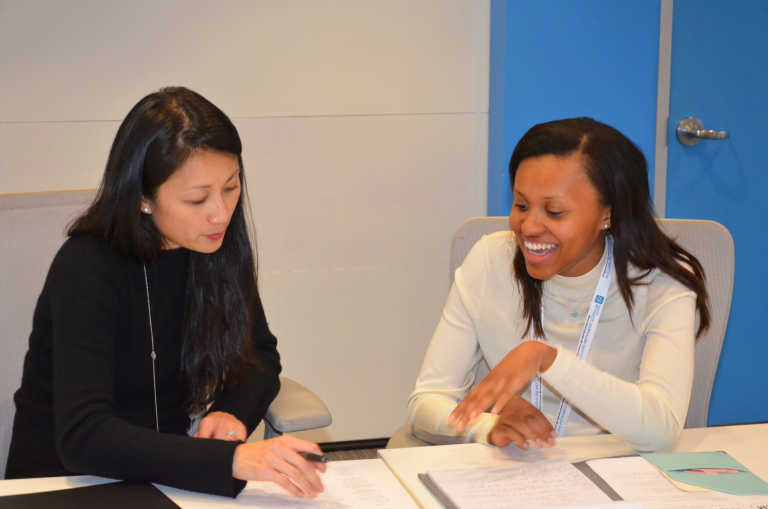One of the key principles of David Novak’s leadership philosophy is that all people want to make a positive difference through the work they do. For leaders, the goal is to establish an environment where each person feels they have a chance to contribute. To do this, you have to start with trust.
What is trust?
Oxford Languages defines trust as the “firm belief in the reliability, truth, ability, or strength of someone or something.” Stephen M.R. Covey, author of “The Speed of Trust”, equates trust with confidence and distrust with suspicion.
At the Novak Leadership Institute, we focus on four factors that affect trust:
- Credibility. Do you tell the truth? When you don’t know something, do you say so?
- Reliability. Do you deliver on commitments? Do you only commit to what you can deliver?
- Openness. Do you seek input from others? Do you show people how you use that input?
- Self-orientation. To what degree is the focus on you versus others?
The presence or absence of any of these factors can change the level of trust. No credibility? The trust level likely is low. High credibility and high self-orientation? The latter might serve to overshadow the former. Let’s take a closer look at each:
Credibility
As CEO of Yum! Brands, David sought to build a culture of healthy debate. He talked a lot about how the best ideas emerge from different viewpoints, and he said he welcomed opposing ideas.
During a board meeting, the KFC chief marketing officer (CMO) shared information about a new product formula. David told the CMO the new formula was not as good as the original. The CMO, trusting David’s word that he appreciated debate, told David why he thought David was wrong. David later told the CMO how much he appreciated the candid conversation.
Although many leaders say they appreciate debate, when it comes time to listen to opposing viewpoints, not all are welcoming. David understood that he needed to be credible to get the best from his people.
Reliability
When David took on his first operations role, as chief operations officer at PepsiCo, he knew little about operations. His job was to learn by visiting bottling plants around the country. In Baltimore, he encountered a plant where employees said nothing was going right.
He asked them what could be done to turn around the plant, and they shared a laundry list of ideas before turning to David and asking, “What are you going to do about all of this?” David replied, “Nothing. You’re the ones who are going to fix all this.”
And they did. Six months later, when David returned, the employees had implemented several of their own ideas and felt proud of their accomplishments. David knew he couldn’t fix their problems (he didn’t have enough experience and wasn’t close enough to the problems), so he didn’t accept the commitment he couldn’t fulfill.
Openness
Because David came from the world of marketing, he had to rely on others to help him learn the businesses he oversaw as he moved up the corporate ladder. He learned to ask employees, “What would you do if you had my job?”
This simple question allowed people to share their unique ideas, and it gave David insights into their perceptions and attitudes. This also helped people feel like David valued their ideas and they were important contributors.
Although it’s relatively easy to ask for input, it’s harder to follow through and show what you did with the input. When you involve others in decision-making, it’s important to let them know what you did with their ideas. If they think nothing came of their input, they are likely to think your openness was for show and trust will suffer.
Self-orientation
Early in his career, David had a boss who would greet every one of his new ideas the same way: “That’s funny. I’d been thinking the same thing.” At first, David thought it was odd that they were so like-minded, then he caught on.
Others in the company recognized the pattern, and they began joking about it. “I’m going to get a drink of water,” one would say. “That’s funny,” another would answer. “I’d been thinking the same thing.”
People can tell when a leader has a strong self-orientation. If the boss is always claiming credit for your ideas, you will pretty soon learn to stop sharing ideas, and you will lose faith in the leader.
Trust is an essential element of leadership. Focus on these four factors to ensure an environment where everyone has a chance to contribute.
Understanding and developing the four factors of trust can transform how you lead. Download this guide to learn how to build credibility, demonstrate reliability, practice openness, and manage self-orientation.
